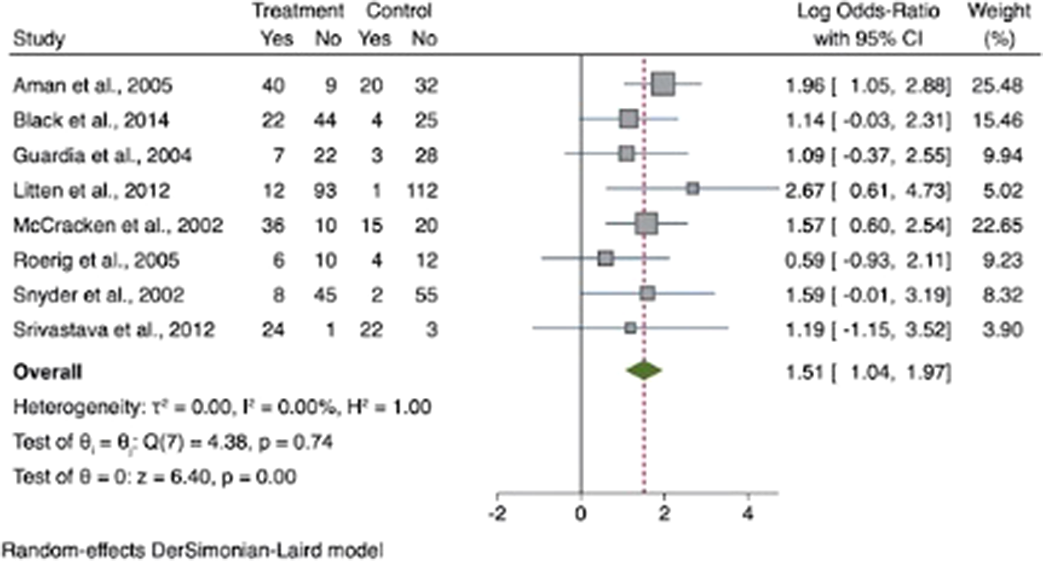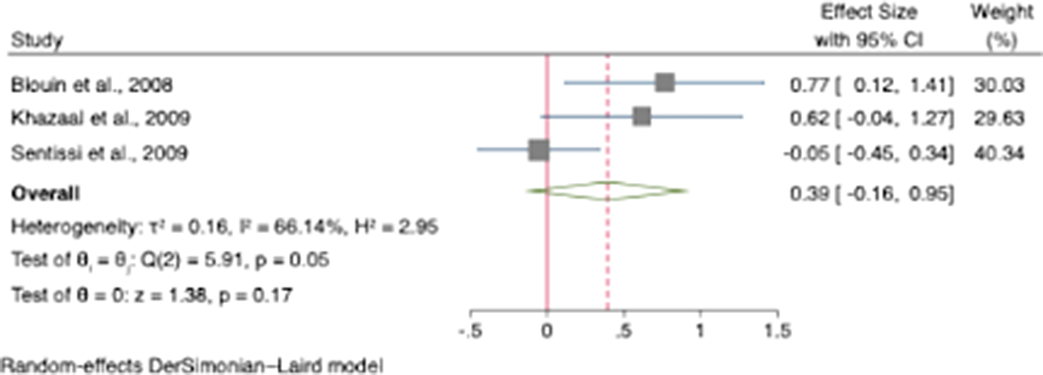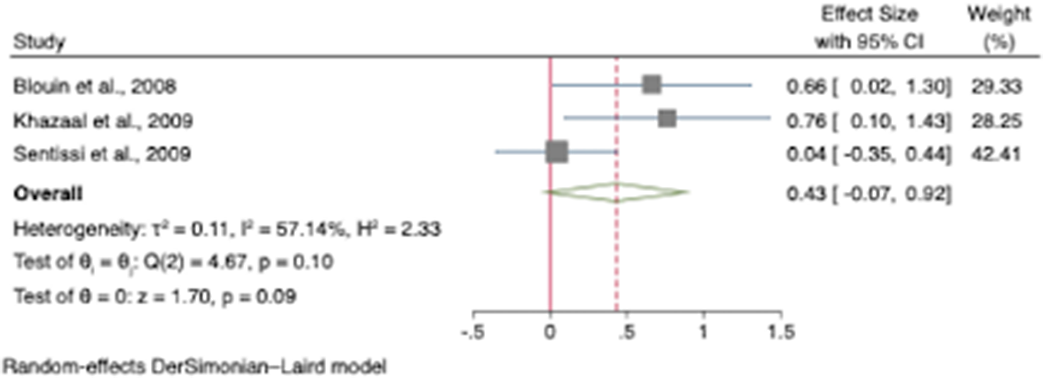No CrossRef data available.
Article contents
Eating cognitions, emotions and behaviour under treatment with second generation antipsychotics: A systematic review and meta-analysis
Published online by Cambridge University Press: 19 July 2023
Abstract
Weight gain and metabolic disturbances are frequent in people treated with second generation antipsychotics (SGA).
We aimed to investigate the effect of SGAs on eating behaviors, cognitions and emotions, as a possible contributor to weight gain and metabolic disturbances.
A systematic review and meta-analysis was conducted following the Preferred Reporting Items for Systematic reviews and Meta-Analyses (PRISMA) guidelines. Original articles measuring outcomes relating to eating cognitions, behaviours and emotions, during treatment with SGAs were included in this review. A total of 92 papers with 11,274 participants were included from three scientific databases (PubMed, Web of Science and PsycInfo). Results were synthesized descriptively except for the continuous data where meta-analyses were performed and for the binary data where odds ratios were calculated.
Hunger was increased in participants treated with SGAs with an odds ratio for appetite increase of 1.51 (95% CI [1.04, 1.97]; z=6.40; p<0.001)(see Figure 1.). Compared to controls, our results showed that craving for fat and carbohydrates are the highest among other craving subscales. There was a small increase in dietary disinhibition (SMD=0.40) and restrained eating (SMD=0.43) in participants treated with SGAs compared to controls and substantial heterogeneity across studies reporting these eating traits (See figure 2 and 3). There were few studies examining other eating-related outcomes such as food addiction, satiety, fullness, caloric intake and dietary quality and habits.
Image:

Image 2:

Image 3:

Understanding the mechanisms associated with appetite and eating-related psychopathology changes in patients treated with antipsychotics is needed to reliably inform the development of effective preventative strategies.
H. Mutwalli Grant / Research support from: The Saudi Arabian Government Educational Sponsorship for PhD, J. Keeler Grant / Research support from: The Medical Research Council, S. Bektas Grant / Research support from: The Turkish Ministry of National Education for PhD training, N. Dhopatkar Employee of: South London and Maudsley NHS Foundation Trust (SLaM), J. Treasure Grant / Research support from: The National Institute for Health Research (NIHR) Biomedical Research Centre (BRC) at the South London and Maudsley NHS Foundation Trust (SLaM), Employee of: King’s College London, H. Himmerich Grant / Research support from: The National Institute for Health Research (NIHR) Biomedical Research Centre (BRC) at the South London and Maudsley NHS Foundation Trust (SLaM), Employee of: King’s College London.
- Type
- Abstract
- Information
- European Psychiatry , Volume 66 , Special Issue S1: Abstracts of the 31st European Congress of Psychiatry , March 2023 , pp. S71 - S72
- Creative Commons
- This is an Open Access article, distributed under the terms of the Creative Commons Attribution licence (https://creativecommons.org/licenses/by/4.0/), which permits unrestricted re-use, distribution, and reproduction in any medium, provided the original work is properly cited.
- Copyright
- © The Author(s), 2023. Published by Cambridge University Press on behalf of the European Psychiatric Association



Comments
No Comments have been published for this article.